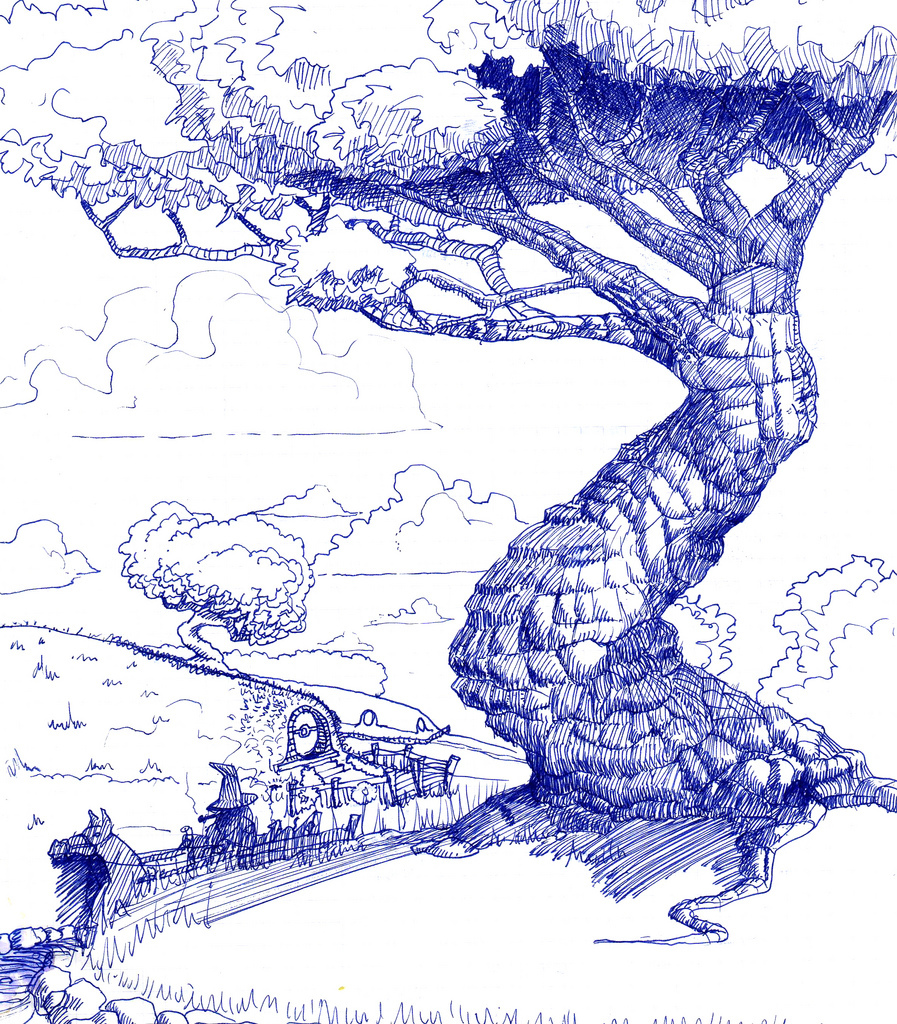English Oak : In Legend, Literature, and Art
The importance of the English oak stretches far beyond that of everyday uses. Many legends are centered around the stately oak in Great Britain. The legend of King Arthur tells the tale of a brave king who braves fierce dangerous with his loyal knights. They all sat at a round table that was made of a single great oak. In that same story, the wizard Merlin (King Arthur’s trusted mentor) would work his magic spells in the shade of gigantic oak.
Some of the trees in these legends have been identified by local towns. This is the case with the Legend of Robin Hood. Robin Hood is forced to become an outlaw by the evil Sheriff of Nottingham and takes refuge in Sherwood Forest. Sherwood Forest is comprised of mostly English oaks. However, one takes center stage in this story. Robin Hood and his merry men find a hollowed out oak that becomes their base camp while they plunder riches from the corrupt nobles of Nottingham. There is an oak in Sherwood Forest today called the Major oak. Estimated to be roughly a thousand years old, it has been hollowed out by fungi but is still alive and growing. The locals say that this is the tree that the great Robin Hood used and many festivals are held around its trunk.
William Shakespeare, the great British playwright, often used the oak in his plays and poetry. In As You Like It Orlando meets his brother under “an oak, whose boughs were moss’d with age/And high top bald with dry antiquity…” In A Midsummer Night’s Dream, the players rehearse under the duke’s “stately oak.” JRR Tolkien is a more modern novelist who used trees extensively in his work. The dwarf prince Thorin in The Hobbit uses a shield made of oak to defend himself in the heat of a battle, earning him the name Thorin Oakenshield. In Tolkien’s work that was inspired by the Norse legend, The Legend of Sigurd and Gudrun, one character is bound to an oak by his enemies, another is hung from it’s great branches.

